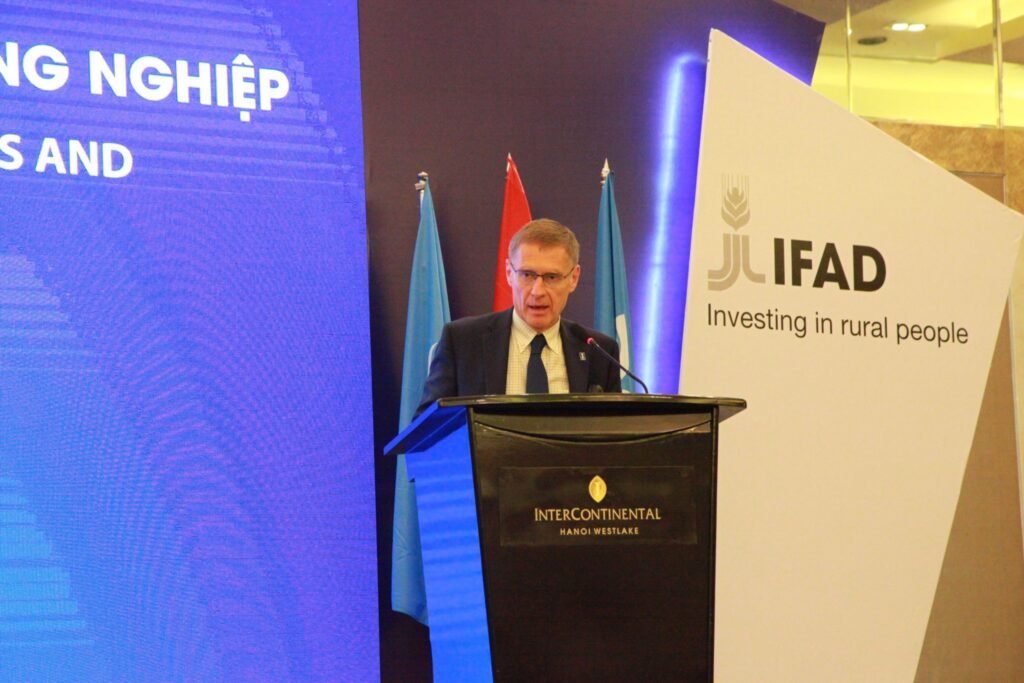By Rogers Aghan, February 16, 2023, Ukraine becomes the 178th country to join the International Fund for Agriculture Development (IFAD). Ukraine’s membership was endorsed on February 15, 2023. The country’s membership was supported by the IFAD’s directing council which is the organization’s most significant decision-making body. IFAD embarked on discussions regarding membership with the Ukrainian government in 2016.
“We are delighted to welcome Ukraine as our newest member. Ukraine’s membership is strongly aligned with IFAD’s mission to ensure that all rural people, particularly small-scale farmers, are included and empowered,” Alvaro Lario, President of IFAD explained.
“A pioneer of the United Nations, Ukraine is regarded as one of the guarantors of global food security and a significant agricultural producer with a lot to contribute as a member of IFAD,” stated Yaroslav Melnyk, Ambassador of Ukraine to Italy.
“Even with the war, Ukraine is more than committed to contributing to global food security to alleviate the food crisis and salvage millions of people from hunger,” he insisted.
Ukraine’s agricultural sector, one of the globe’s top wheat, sunflower oil, and corn distributors has experienced nearly US$2.2 billion in losses since the beginning of the war about a year ago.
In march, 2022, the global food system and supply chains have significantly been altered by the ripple effects of the war. Food prices hit an all-time high and registered higher than in the preceding years. High fertilizer and fuel costs in 2022 affected production and triggered a hike in prizes forcing small-scale farmers to choose between financing food purchases or planting.
Small-scale food producers in impoverished regions have been among the immensely affected by the food crisis, which has been compounded by the effects of global inflation, intensifying climate change, the pandemic, and other shocks.
“IFAD was established to invest in, work with, empower, inspire, and give voice to rural people. Over the decades we have learned what works and what doesn’t,” said Lario. “We have evidence that our people-centred approach to development delivers results – even in fragile, remote and marginal contexts,” he added.
Even while most of the Ukraine’s exports come from extensive agricultural producers, 4 million small-scale farmers play an integral part in generating food, especially during this time when war has engulfed most parts of the country. These farmers produce nearly 80 percent of vegetables, fruits, and dairy, ensuring food security in the country.
The support of these farmers is also fundamental in ensuring internally displaced persons are catered for considering that they migrated from urban to rural areas to evade the war.
By disposing of their products to markets locally, these individuals contribute to local supply chains and create resilience in rural communities.
It is anticipated that small-scale producers in the western provinces, where the population has increased due to war, could require support to cater to the heightened demand for food.
According to a past report, many people residing in rural areas are susceptible to poverty, with 44 percent depending on income below the subsistence minimum, and another 7 percent encountering malnutrition.
Ukraine’s agri-food sector is a critical source of livelihood for the estimated 13 million Ukrainians living in rural areas.
Ukraine will be wholly integrated in IFAD’s next funding cycle, starting in 2025. Meanwhile, IFAD will explore strategies to achieve funds to support Ukraine’s rural development priorities, including the rehabilitation of rural infrastructure, and activities that help increase agricultural productivity, improve competitiveness and generate employment.







